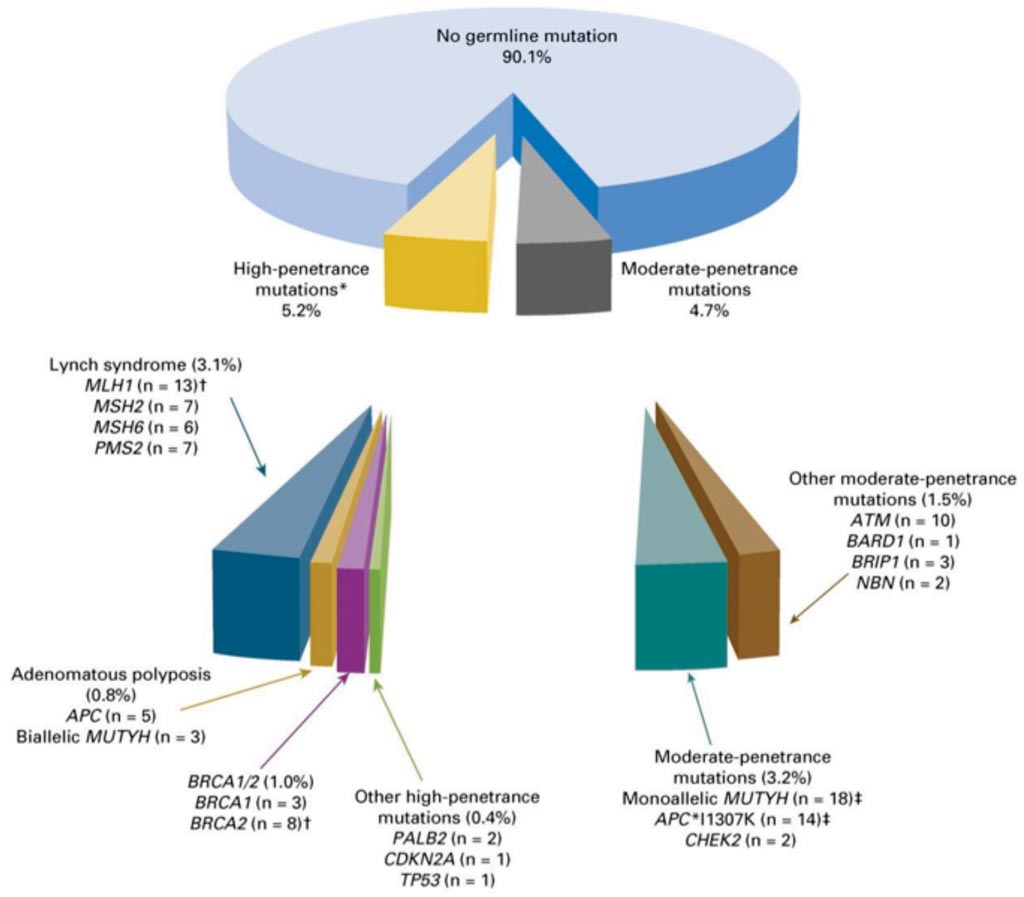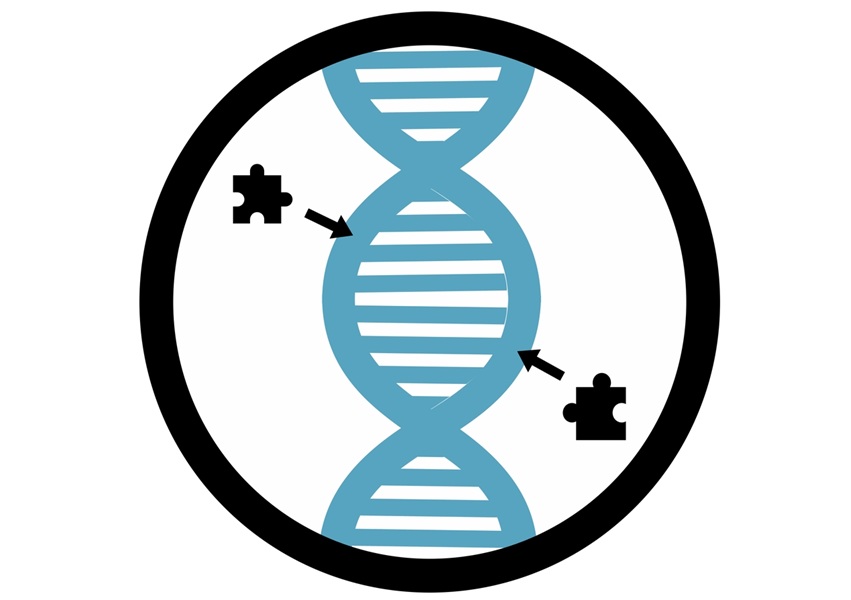Broader Genetic Testing Recommended for Colorectal Cancer Risk
By LabMedica International staff writers
Posted on 16 Feb 2017
An expanded role for genetic testing of inherited risk has been recommended, both to help in treating people with colorectal cancer and in preventing their at-risk family members from developing it.Posted on 16 Feb 2017
Hereditary factors play an important role in colorectal cancer (CRC) risk, yet the prevalence of germline cancer susceptibility gene mutations in patients with CRC unselected for high-risk features such as early age at diagnosis, personal/family history of cancer or polyps, tumor microsatellite instability (MSI), mismatch repair (MMR) deficiency, is unknown.

Image: Pathogenic mutations identified with a multigene panel among 1,058 individuals with colorectal cancer (Photo courtesy of American Society of Clinical Oncology).
A large team of scientists working with those at the Dana-Farber Cancer Institute recruited 1,058 participants who received CRC care in a clinic-based setting without preselection for age at diagnosis, personal/family history, or MSI/MMR results. All participants underwent germline testing for mutations in 25 genes associated with inherited cancer risk. Each gene was categorized as high penetrance or moderate penetrance on the basis of published estimates of the lifetime cancer risks conferred by pathogenic germline mutations in that gene.
Germline DNA was extracted from frozen whole blood of each participant, polymerase chain reaction amplified with a custom amplicon library, and sequenced to detect sequence alterations and large rearrangements among 25 cancer susceptibility genes by following procedures developed in prior studies. The study performed a much wider scope of genetic investigation, using a commercial test panel from Myriad Genetic Laboratories to look for mutations in genes associated with inherited cancer risk.
The investigators found that 105 (9.9%) of 1,058 participants carried one or more pathogenic mutations, including 33 (3.1%) with Lynch syndrome (LS) and 28 (96.6%) of 29 available LS CRCs demonstrated abnormal MSI/MMR results. There were 74 (7.0%) of 1,058 participants who carried non-LS gene mutations, including 23 (2.2%) with mutations in high-penetrance genes, 15 of whom lacked clinical histories suggestive of their underlying mutation. Thirty-eight (3.6%) participants had moderate-penetrance CRC risk gene mutations. Neither proband age at CRC diagnosis, family history of CRC, nor personal history of other cancers significantly predicted the presence of pathogenic mutations in non-LS genes.
Matthew B. Yurgelun, MD, the lead author of the study said, “We've known for a long time that inherited factors often play into somebody's risk of developing colorectal cancer. We've typically relied on factors like having a strong family history of the disease, or being diagnosed with the disease at a young age, to guide who gets genetic testing to look for well-described hereditary syndromes, such as Lynch syndrome. We ultimately found that the prevalence of these hereditary cancer susceptibility mutations within this cohort was about one-tenth, quite a bit higher than the traditional thinking.” The study was published on January 30, 2017, in the Journal of Clinical Oncology.













